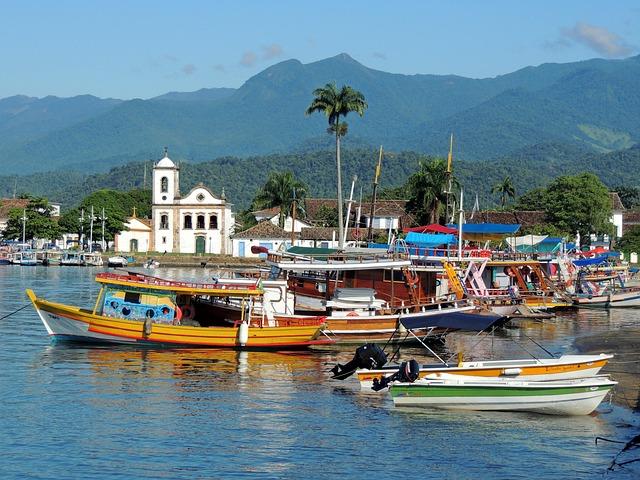Brazilian President Luiz Inácio Lula da Silva has confirmed that former President Jair Bolsonaro will serve a prison sentence, marking a significant development in the country’s ongoing political and judicial saga. The announcement, reported by Anadolu Ajansı, underscores the intensifying accountability measures against Bolsonaro amid allegations of corruption and misconduct during his tenure. This statement from Lula signals a pivotal moment in Brazil’s efforts to address political corruption and uphold the rule of law.
Lula Confirms Former President Bolsonaro to Serve Prison Sentence Amid Political Turmoil
President Luiz Inácio Lula da Silva has formally acknowledged that his predecessor, Jair Bolsonaro, will be obliged to serve his prison sentence following a series of legal proceedings that have intensified political tensions across Brazil. This announcement marks a significant moment in the country’s ongoing struggle with judicial accountability and governance, highlighting the government’s commitment to uphold the rule of law regardless of political stature.
Key points surrounding this development include:
- Legal Charges: Bolsonaro was convicted on multiple counts related to corruption and abuse of power during his tenure.
- Political Impact: The ruling has sparked protests from Bolsonaro’s supporters, deepening national divisions.
- Government Response: Lula’s administration emphasizes the importance of legal process and national stability amid unrest.
| Aspect | Details |
|---|---|
| Sentence Duration | Multiple years |
| Highest Authority | Federal Supreme Court |
| Public Reaction | Divided and Polarized |
Implications of Bolsonaro’s Imprisonment on Brazil’s Democratic Stability and International Relations
The incarceration of former President Jair Bolsonaro marks a pivotal moment for Brazil’s democratic framework, raising critical questions about the resilience and impartiality of its judicial system. This unprecedented move underscores the country’s ongoing struggle to balance political accountability with social cohesion. As Bolsonaro maintains a substantial support base, potential unrest and polarization could challenge democratic stability. Yet, many analysts argue that firm legal enforcement reinforces the rule of law, signaling to both domestic and international observers that no individual remains above the constitution.
On the international front, Bolsonaro’s imprisonment could recalibrate Brazil’s diplomatic posture and its global partnerships. Observers suggest that:
- Regional relations might shift as neighboring countries reassess cooperation frameworks.
- Trade negotiations could be influenced by perceptions of political risk and governance quality.
- Global alliances may experience realignments reflecting Brazil’s internal political transformations.
Below is a concise overview of anticipated impacts on Brazil’s democratic governance and foreign relations:
| Aspect | Potential Impact | Key Stakeholders |
|---|---|---|
| Judicial Independence | Increased trust in legal institutions | Judiciary, Civil Society |
| Political Polarization | Risk of protests and divisions | Political Parties, Public |
| Diplomatic Relations | Potential recalibration of foreign policy | Government, International Partners |
Recommendations for Ensuring Fair Legal Processes and Promoting National Reconciliation
Ensuring justice in politically sensitive cases demands transparent legal frameworks and rigorous adherence to the rule of law. To foster public trust, authorities should emphasize impartial investigations and due process guarantees for all parties involved. Independent judicial review mechanisms, coupled with open communication channels, will help prevent perceptions of political vendettas and reinforce confidence in legal institutions.
In parallel, promoting national reconciliation requires a multifaceted approach that balances accountability with societal healing. Recommendations include:
- Inclusive dialogue forums: Bringing together diverse groups to discuss paths forward.
- Truth and reconciliation commissions: Documenting grievances and fostering mutual understanding.
- Community-based restorative justice programs: Encouraging local engagement in healing processes.
- Educational initiatives: Promoting awareness of democratic principles and human rights.
| Key Element | Focus Area | Outcome |
|---|---|---|
| Judicial Independence | Legal reforms, impartial courts | Fair sentencing, national trust |
| Accountability | Transparent processes, proof standards | Legitimacy of verdicts |
| Reconciliation | Dialogue, education, healing | Social cohesion |
The Conclusion
As Brazil moves forward under President Lula’s administration, the confirmation that former President Jair Bolsonaro will serve his prison sentence marks a significant moment in the country’s ongoing efforts to address political accountability and reinforce the rule of law. This development underscores the deep political divisions in Brazil and sets the stage for continued scrutiny of the nation’s democratic institutions. Analysts and citizens alike will be watching closely to see how this landmark decision shapes the future political landscape.




